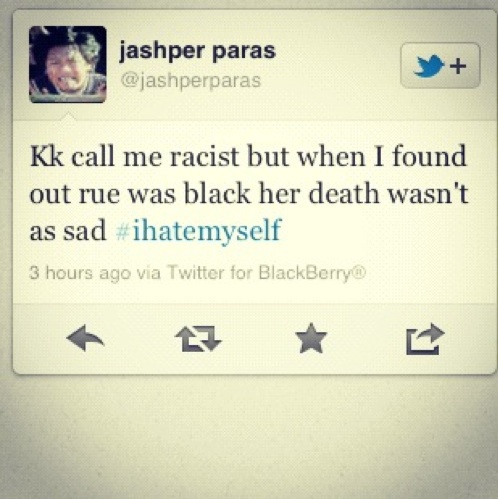I just watched this news report on a terrible case in which Ikenna Njoku, a man from Auburn WA, tried to cash a cheque at Chase bank and ended up in jail (a full transcript is available here).
Vodpod videos no longer available.
I thought the news report might offer an interesting example of shielding the white viewing public from a description of racism in order to help preserve their privilege and ignorance around how racism operates to create disadvantages.
At about minuet 1:45 of the video they interview the gentleman, Njoku, who had been accused of forging the Chase cheque. He explains that the teller was very suspicious of him and asked where he worked. Then, just as he is recounting how the teller asked him about where he lived, “It’s like she didn’t believe that…” the reporter cuts him off (at 1:57). I obviously did not see the uncut tape, so I don’t know what comes next. But it seems like he was about to talk about racist views that are suspicious of black people, and it is in the context of not believing that he would be able to afford a house in a particular area. It seemed like a really odd place to cut the interview, and I really wonder whether it was because he was about to identify one way in which racism operates.
(Full disclosure: part of the reason I wonder about this is the result of my own experiences with media interviews. I was once interviewed about cancer care and the experiences of cancer patients. The interviewer repeatedly cut me off whenever my discussion became even slightly “political.” It was a really odd experience to be interrupted precisely when I began to make a point.)
In a now classic feminism 101 paper, Peggy Mackintosh describes how privilege often blinds those who have privilege to the benefits they receive from oppressive systems by hiding the oppressive workings of that system.
I think whites are carefully taught not to recognize white privilege, as males are taught not to recognize male privilege.
One way this “teaching” occurs is by editing out any account of the experience of racism or sexism. The story then becomes about a general kind of unfairness that could happen to anyone rather than an injustice with racial or gendered implications.
It seems like Njoku was about to tell us how the woman suspected he did not live where he claimed because she did not think black people lived in that area (I am not the only one who interpreted it this way). And this kind of suspicion of black people is indeed one of the ways that racism operates. Black people are often suspected of being “criminals” even when they are not, and this suspicion can affect many aspects of their lives.
For example, Devah Pager (2003) conducted a study in which she created fake credentials for black and white matched-pairs of job applicants. The audit included some applicants who reported having a criminal record for non-violent drug possession and some who reported no record. She found that blacks with a criminal record were significantly less likely to get called back for the job than were whites (5% for blacks with a criminal record vs. 17% for whites with a criminal record) (Pager 2004, 958). Pager writes, the “ratio of callbacks for nonoffenders relative to ex-offenders for whites is 2:1, this same ratio for blacks is nearly 3:1. The effect of a criminal record is thus 40% larger for blacks than for whites” (Pager 2004, 959). This could be taken to show that black men with a criminal record seem less ‘forgivable’ to employers than do white applicants with a criminal record. Further, even black applicants with no criminal record were called back at a rate lower than white applicants with a criminal record (17% for whites with a criminal record vs. 14% for blacks with no criminal record) (Pager 2004, 958). Pager suggests that employers might be associating race with crime even when there is no evidence of a criminal record. For example, she reports that on three occasions, the black applicants were asked about their criminal involvement whereas none of the white applicants were asked about their criminal involvement (2004, 960).
In the news report from the embedded video, Njoku might have experienced discrimination based on his race, but if so that is edited out. This leaves the viewers ignorant of how racism operates and how white privilege shields them from these situations. There is no guarantee that Njoku would not have been thrown in jail if he were white, but there is evidence that tellers would be less suspicious of a white person doing just what he did. This can lead to racial over representation in prisons and so forth. But ignoring the racial dimensions makes it seem like anyone would be equally likely to face such a situation.
Read Full Post »




